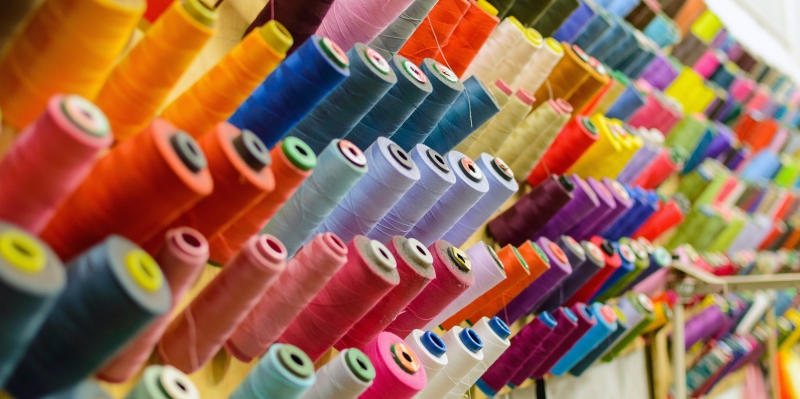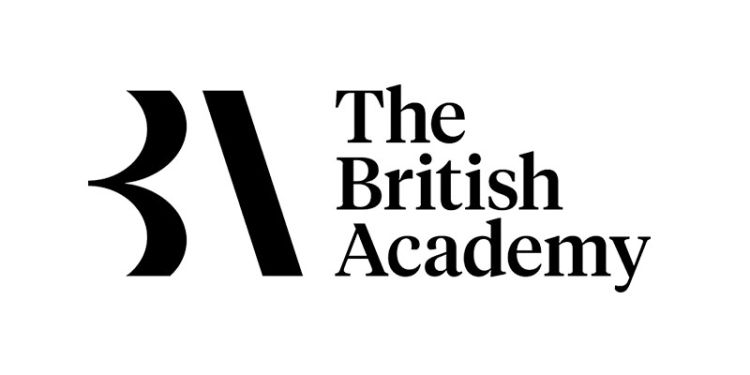Research project
Pulling a thread: unravelling the trail of modern slavery in the fashion and textile industry
- Start date: 15 November 2017
- End date: 15 February 2019
- Funder: The British Academy
- Principal investigator: Professor Hinrich Voss
- Co-investigators: Dr Matthew Davis (Socio-Technical Centre); Dr Mark Sumner (School of Design); Professor Louise Waite (School of Geography)
- External co-investigators: Dr Divya Singhal and Dr Deepti Jog, both Goa Institute of Management, India

Description
Project background
Using the UK Modern Slavery Act (MSA) 2015 as a reference point, this project set out to
- Identify the barriers to addressing modern slavery in the global clothing value chain;
- Understand the motives of suppliers for having forced labour; and
- Suggest solutions for industry and policy makers. The research focused on Indian (Tamil Nadu) and Vietnamese supply chains as they are important source countries for UK firms. These two countries are also home to small, fragmented and non-integrated businesses, making the identification, monitoring and addressing of modern slavery challenging.
In this project we particularly focus on Section 54 of the Act which is concerned with transparency in supply chains.
Research overview
The MSA requires businesses that operate in the UK and have a global turnover of more than £36 million to clarify in an annual public statement what steps they have taken to understand and to reduce the risk of modern slavery in their operations and global supply chains. The fulfilling of this obligation for large and powerful businesses that dominate the UK high street is not simple or straightforward in practice. Reasons for this can be found within the Act and in how businesses operate.
The Act obligates businesses to make an annual statement but is rather vague in its precise requirements of the nature of such statements. Our research to date has shown that typically Modern Slavery statements do not report:
- The prevalence of modern slavery within an organisation’s supply chain in both absolute numbers and relative to the workforce employed and thus the level modern slavery risk
- A definition or visibility of supply chains considered in the risk assessment
- External third party verification of the information collated and provided
- Modern slavery in essential supply chains, yet not core to the focus of the organisation (for example, security, cleaning and catering services).
The omission of such information and the inconsistent coverage makes it difficult for policy makers, let alone the wider public, to understand the origin, extent and implications of modern slavery in supply chains. If we consider the omissions as reflective of the level of knowledge businesses have about modern slavery, then this would further suggest that businesses have incomplete information about the modern slavery situation in their supply chains; or simply are unsure as to how broadly and deeply they should investigate their supply chains.
The MSA defines supply chains as how they are ‘commonly understood’. Our research specifically explores the definition of supply chains and it is clear there is no commonly understood conceptualisation of such. While it is possible to map a supply chain for a particular product or category of product, mapping the whole supply chain for an organisation or sector is very complex due to its diversity, its constantly changing structure and an inherent tendency for opaqueness.
In stage 1, we collected and analysed the modern slavery statements of businesses operating in the British fashion and textile sector. The analysis of statements for 300+ companies was used to assess to what extent firm comply with the Act (both by letter and in spirit) and to inform the following stages.
In stage 2, we interviewed brands operating in the UK to understand their view of the Act and to secure access to their global value chain.
In stage 3, we interviewed businesses along the Indian value chain down to the cotton farms as well as key stakeholders in Vietnam.
Key findings
The project revealed that there was little incentive for UK and overseas businesses above the Modern Slavery Act threshold (>£36m), as well as for companies in overseas supply networks, to engage with the Act. It found that a large number of firms were not filing any modern slavery statements, which did not level the playing field for companies. The research also uncovered that knowledge about the UK Modern Slavery Act among Indian suppliers is very limited. Although these suppliers are addressing exploitative labour practices through audits, they do so on the basis of long-standing industry practices and not as a result of the requirements of UK legislation. While the Act has been a helpful tool to engage suppliers in the UK, it seems to have had little bearing on business practices overseas, especially in remote locations.
In general, the statements in our dataset often superficially address how many first-tier suppliers they have and in which countries these are located. About half of companies indicate that they are making some effort to map their supply chains beyond first-tier product suppliers. Our research interviews with businesses have shown that some organisations consider only first tier suppliers as their supply chain, where there is a clear contractual relationship, that is, for example, suppliers that carry out the final assembly of a product. Others have a much wider definition. Depending on the industry sector and how it is structured, supply chains can be one or up to eight tiers deep, spread across four or more different countries. Some organisations are not aware of the full extent of their supply chain due to their business model, the fragmented nature of the globalised supply chain and an intrinsic lack of transparency. The supplier can be, for example, an agent who sources goods and services rather than providing them directly. This typically leaves the procuring organisation in the dark regarding the source.
The power of organisations to influence the behaviour beyond first tier suppliers diminishes dramatically the further down these tiers one moves. Beyond the first tier, UK brands have typically no contractual relationship, are often not in direct communication with suppliers and often do not even know their names. At the same time, the potential for incidents of modern slavery increases further down the tiers as they tend to be labour intensive, less formalised and in less regulated sectors of the supply chain.
First and second tier suppliers that we interviewed in India and Vietnam are sympathetic to the fact that large businesses often do not know their whole supply chain in detail, yet are being asked to control and monitor it. Despite this acknowledgement, the suppliers expect clearer and stronger direction from the UK brands. It is, after all, the UK brands’ product that the suppliers are producing.
This research has suggested that the UK Modern Slavery Act should clearly stipulate the scope of ‘supply chains’ covered by it. Stakeholders within the same sector can have widely differing perspectives on the length of a ‘supply chain’. Common reporting standards for transparency should also be established. Such standards would not only help annual modern slavery statements to play their intended role in line with the spirit of the Act but would also assist the mapping and understanding of supplier networks beyond the first tier (where most of the labour exploitation occurs).
The research team also concluded that more effective interactions between hard and soft laws was needed. Enforcement of the Modern Slavery Act should build on the existing understanding among brands and their suppliers of long-standing industry initiatives (such as the Ethical Trading Initiative).
Publications and outputs
Voss, H., Davis, M., Sumner, M., Waite, L., Ras, I.A., Singhal, D., & Jog., D. 2019. International supply chains: compliance and engagement with the Modern Slavery Act. Journal of the British Academy, 7(s1), 61–76. DOI https://doi.org/10.5871/jba/007s1.061
Blitz, B. & Voss, H. 2019. Pulling the thread: engagement with the UK Modern Slavery Act from a global fashion and textile industry perspective. https://www.thebritishacademy.ac.uk/sites/default/files/Voss%20Note.pdf
Voss, H., Davis, M., Waite, L., Sumner, M., & Ras, I.A. 2018. Written evidence MSA0092, 16 October 2018. http://data.parliament.uk/writtenevidence/committeeevidence.svc/evidencedocument/home-affairs-committee/modern-slavery/written/89057.html
Inclusion and explicit mentioning in the Environmental Audit Committee report. “Fixing fashion: clothing consumption and sustainability” (19 Feb 2019) (https://publications.parliament.uk/pa/cm201719/cmselect/cmenvaud/1952/1952.pdf)
Dissemination and press coverage:
- “Modern slavery and international business”, Corporate Responsibility Research Conference, Leeds, 12 September 2018
- “Localization of the SDGs: Accelerating the implementation of the 2030 Agenda. International symposium for policy makers and academics”, Medellin, Colombia, 7 December 2018
- Scenario workshop with attendees from the supply chain. Coimbatore, India, 8 January 2019 (available upon request)
- Roundtable with attendees from industry, unions, and government. Coimbatore, India, 8 January 2019
- GIM and University of Leeds releases Report on Challenges faced by Textile Industry due to regulations in the British Legislation, Date: February 11, 2019, http://indiaeducationdiary.in/gim-university-leeds-releases-report-challenges-faced-textile-industry-due-regulations-british-legislation/
- Dainik Navjyoti (Hindi Daily News Paper- National) 12 Feb 2019 News on page 9 with photo
- University of Leeds to hold Stakeholder discussion forum in the city- The New Indian Express 8 Jan 2019 retrieved from http://epaper.newindianexpress.com/1971413/The-New-Indian-Express-Coimbatore/08012019#page/2/1
- Goa Institute Of Management (GIM) Are Sharing The Findings From Their Recent Research 11 Feb, retrieved from http://mayursamvad.in/2019/02/goa-institute-of-management-gim-are-sharing-the-findings-from-their-recent-research/
- Dinamani – Tamil New Paper- news with photo 8 Jan 2019 retrieved from http://epaper.dinamani.com/c/35580835
- PSG IM to support research on Textile Clusters in Coimbatore – The Covai Mail, Date: 07 January 2019 http://www.covaimail.com/?p=11519
- Delhi Event coverage by Local Media – Ajmer date 13 Feb 2019 Retrieved from https://ajmernama.com/national/310430/
- Anchor News Channel retrieved from https://www.youtube.com/watch?v=Iywq4mI8HOg&feature=youtu.be
- “Pulling a Thread: The impact of the UK Modern Slavery Act on the global fashion and textile industry” workshop with contributions from 6AM Company, British Business Group Vietnam, Coats Phong Phu, University of Leeds, and Pacific Links Foundation. Ho Chi Ming City, Viet Nam, 17 January 2019.
- “Following the Thread: Understanding the clothing supply chain and the effect British Legislation has on Indian Business” roundtable discussion with contributions from Bachpan Bachao Aandolan, UN Global Compact India, University of Leeds, and WeWork Latitude. Delhi, India, 8 February 2019.
- GIM and University of Leeds releases Report on Challenges faced by Textile Industry due to regulations in the British Legislation, 11 February 2019, http://indiaeducationdiary.in/gim-university-leeds-releases-report-challenges-faced-textile-industry-due-regulations-british-legislation/
- Goa Institute of Management (GIM) are sharing the findings from their recent research, 11 February 2019. http://mayursamvad.in/2019/02/goa-institute-of-management-gim-are-sharing-the-findings-from-their-recent-research/
- “'Pulling a Thread' - Seminar on Modern Slavery” scenario workshop with attendees from industry, NGOs and UK government. London, 12 February 2019. (https://modernslaverybritishacademy.eventbrite.co.uk)
- “Addressing modern slavery in global value chains”, Network, 2020 https://network.business.leeds.ac.uk/addressing-modern-slavery-in-global-value-chains/
Project website
https://www.thebritishacademy.ac.uk/projects/modern-slavery-fashion-textile-industry


